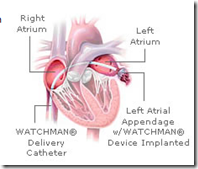RNA-based aptamer technology is a new approach to make safer drugs, and allows for the creation of the drug along with the antidote at the same time. In this article, blood thinning agents are used as an example. Blood thinning agents are one of the most difficult classes of drugs to coordinate and dose. An aptamer is a nucleic acid that bind to a specific targeted molecule. Aptamer drugs are normally not recognized by the body as foreign agents and don’t trigger an immune response, one fact in itself that leads the process to being a safer drug.
agents and don’t trigger an immune response, one fact in itself that leads the process to being a safer drug.
Common sense would pretty much indicate to anyone that in the case of an overdose of blood thinner, an antidote being handy would certainly be welcome anywhere. Warfarin has been a highly controversial blood thinning drug for which there is a DNA test available on another note and debates have gone around many times on the test, which Medicare has decided not to pay for and there is an FDA sensitivity test available.
Who's going to pay for the Warfarin Test - Personalized Medicine
So perhaps the answer lies in a new class of drugs or perhaps the medical device in clinical trials, “The Watchman” when it comes to blood thinners. BD
Imagine a surgical patient on a blood-thinning drug who starts bleeding more than expected, and an antidote that works immediately - because the blood thinner and antidote were designed to work together. Researchers at Duke University Medical Center have engineered a way to do this for an entire, versatile class of drugs called aptamers and published their findings in Nature Medicine.
"With any anticoagulant, you are trying to reduce your chances of having clotting because it can lead to a heart attack or stroke during treatment," said Bruce Sullenger, Ph.D., senior author and Vice Chair for Research and Joseph W. and Dorothy W. Beard Professor of Surgery. Yet bleeding is a common side effect during and after treatments that require anticoagulation therapy such as surgery or angioplasty.
These new antidotes may give doctors a way to quickly and precisely put the brakes on an anticoagulant if bleeding becomes a problem or neutralize other adverse events or toxicities.
Duke researchers have just completed a series of successful clinical trials in patients taking a blood-thinner aptamer and an antidote engineered to reverse the effects of the aptamer.
To date, one aptamer has been approved by the U.S. Food and Drug Administration, a drug for macular degeneration, a cause of blindness. Several others are being tested and developed for use in cardiovascular, hematology and cancer patients.
Designing drugs and their antidotes together improves patient care



0 comments :
Post a Comment